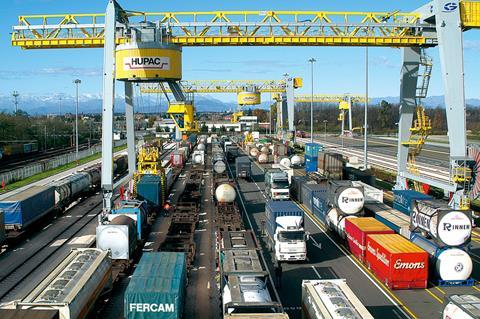
EUROPE: The European Rail Freight Association says lessons about the key success factors for rail freight can be learned from the significant improvement in performance which has occurred as a direct consequence of the drastic reduction in passenger traffic during the coronavirus pandemic.
Shippers have long been concerned about rail freight punctuality and reliability, ERFA said. However, much of this is dependent on the condition and availability of infrastructure, which is out of the control of an individual operator.
During the pandemic the punctuality of international freight trains increased from around 60% to between 80% and 90%. If sustained, this would make rail more attractive services to shippers and help meet decarbonisation targets, the association suggested. However ERFA warned that this could only be achieved with a ‘new normal’ where freight has clear and well-defined rights enshrined in EU legislation.
ERFA said the forthcoming revision of Regulation 913/2010 on Rail Freight Corridors must:
- improve the quality of freight paths, to enable improved punctuality, permit 750 m train lengths and increased loadings, and ensure a harmonised P400 profile;
- give freight and passenger trains equal priority in slot allocation;
- ensure that operational rules are internationally secured and harmonised, with a punctual train always going first;
- introduce supranational traffic management, with a ‘specific and measurable’ focus on the quality of international freight trains;
- give the freight corridor management organisations equal decision-making rights with national infrastructure managers.
‘One of the key takeaways from the Covid crisis is that we have not been successful in creating a good framework for rail freight to operate in to date’, said ERFA Secretary General Conor Feighan on June 5. ‘This lesson needs to be taken into account in the Commission’s upcoming Strategy on Sustainable & Smart Mobility and, in particular, the revision of the Rail Freight Corridors Regulation. Continued and sustainable growth in rail freight can only be achieved through granting rail freight clear and well-defined rights.’

















